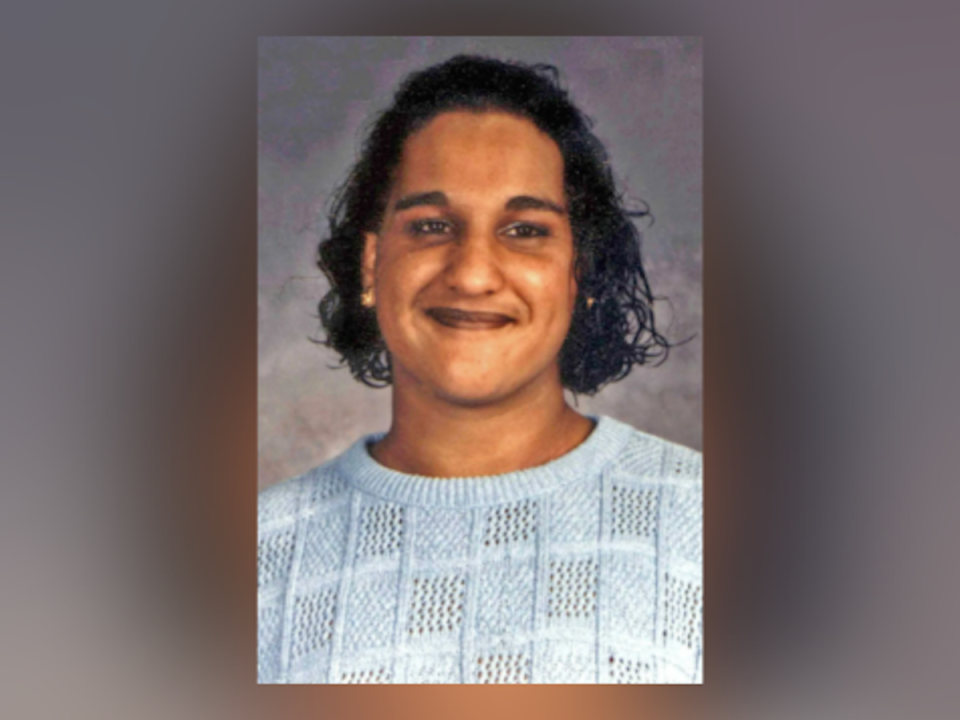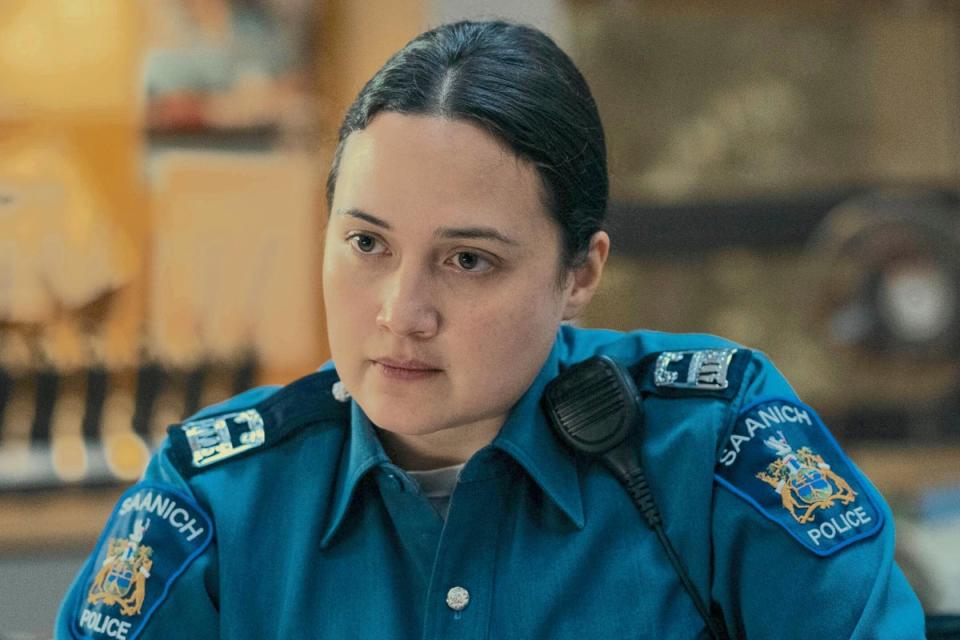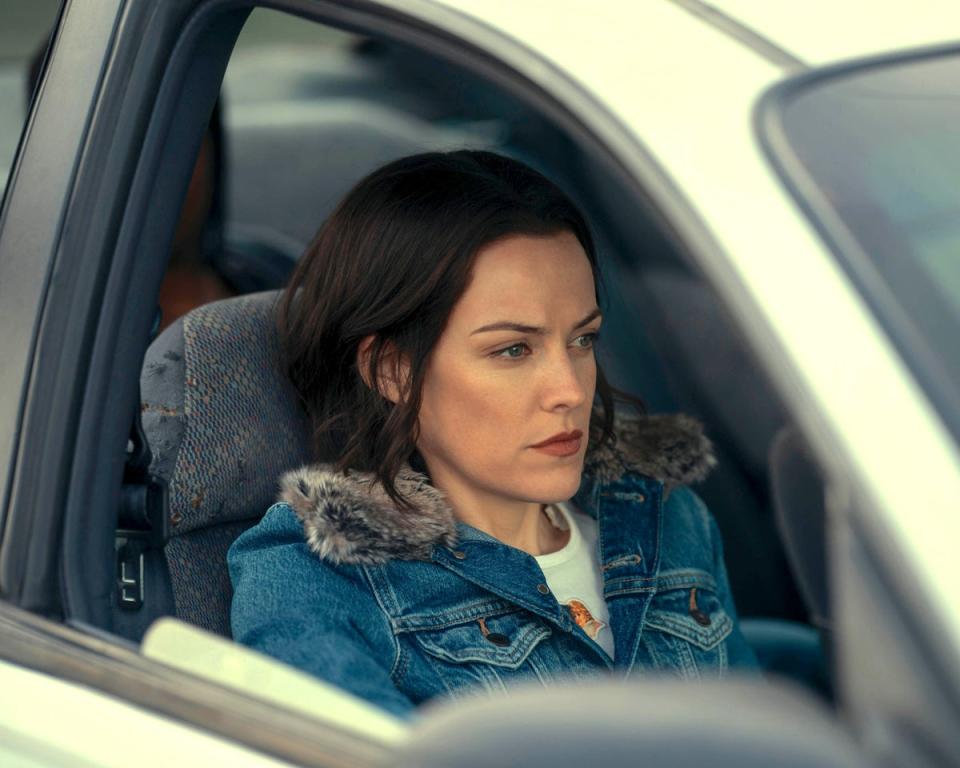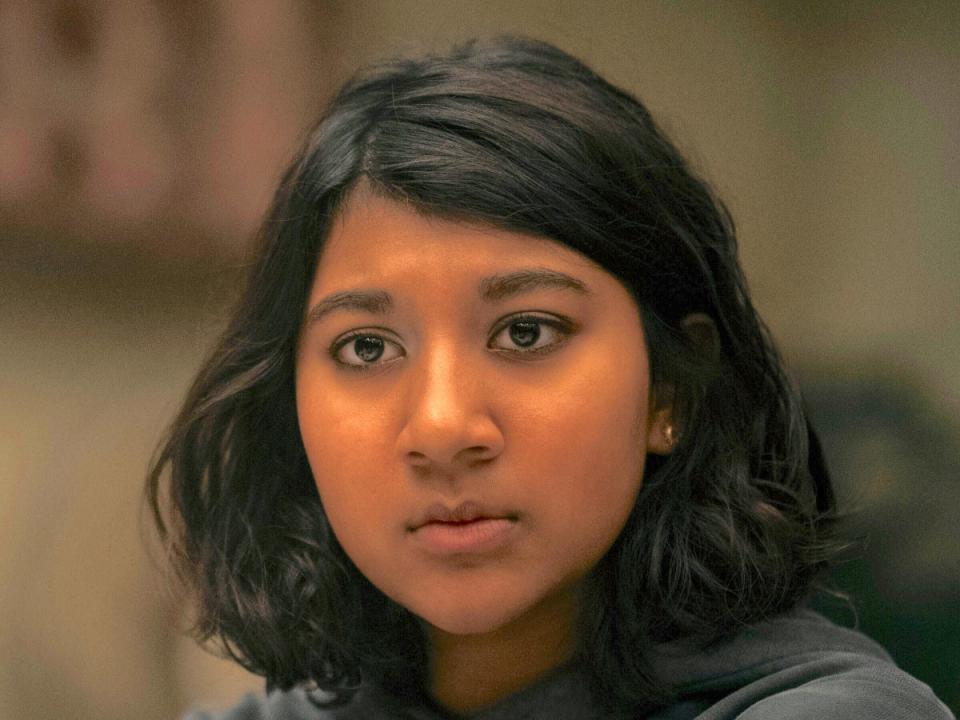Under the Bridge: The grisly true story behind Hulu’s new show starring Lily Gladstone
On 14 November 1997, in the quiet suburbs of Victoria, British Columbia, 14-year-old Reena Virk was savagely beaten and drowned by a group of teenagers. The heinous crime became a media sensation due to the moral panic surrounding teenage “girl violence” at the time.
Rebecca Godfrey, an author from Victoria, was among those captivated by the horrific story of the young teen slain in her hometown. While in the process of writing her debut novel (2001’s The Torn Skirt), Godfrey received numerous calls from friends about the murder. “I went home soon after [the killing] and went into the prison,” she told Interview Magazine in 2019. “I was just stunned because the girls all looked like normal, cool, young teenage girls, not particularly like killers.”
Over the next six years, Godfrey conducted exhaustive research, interviewing the accused and attending court trials, all of which would go on to inform her 2005 book, Under the Bridge.
Now, the events detailed in Godfrey’s best-selling non-fiction are the subject of Hulu’s new limited series of the same name. Starring Oscar-nominated actor Lily Gladstone (Killers of the Flower Moon) as fictional investigator Cam Bentland and Riley Keough (Daisy Jones & The Six) as Godfrey herself, Under the Bridge centres on the author’s investigation into Virk’s gruesome murder.
Virk had been the victim of relentless bullying by her classmates for her weight, appearance and religion. Born to an Indian father, Manjit, and an Indo-Canadian mother, Suman, who were both devout Jehovah’s Witnesses, Virk wanted badly to fit in with her majority white peers. In a desperate bid to gain more freedom, she falsely reported her father for sexual molestation and was briefly placed in foster care in 1996. However, the charges were quickly dropped, and Virk returned home.

Around a year later, Virk was invited to a party by a group of schoolmates, including two she had met through the foster care system. Elated by the invitation, she eagerly joined. The gathering, which took place behind the school, relocated to the nearby Craigflower Bridge after police broke it up.
As it approached 11pm, Virk was accosted by a girl who accused her of spreading rumours. The girl stubbed out her cigarette on Virk’s forehead before she was joined by seven others – six girls and one boy, all aged 14 to 16 – who jumped in on the assault, kicking and punching Virk. The attack continued until Virk managed to get up and stagger across the bridge toward a bus stop to make her way home.

Two of the teenagers, Warren Glowatski, 16, and Kelly Ellard, 15, then dragged Virk back to the water, beating her and drowning her in Victoria’s Gorge Waterway. Eight days later, authorities recovered her partially clothed body. The autopsy report found extensive “internal injuries to her back and abdomen that were consistent with being kicked and stomped”.
In February 1998, six girls who had participated in the initial ambush, but weren’t involved in drowning Virk, were prosecuted in youth court. All six ended up being convicted of assault causing bodily harm and were handed a 60-day conditional sentence to one year in jail.
The murder trial for Virk began in 1999, with Glowatski, then 18, tried as an adult and convicted of second-degree murder. “Violence is not a recreational activity,” Justice Malcolm Macauley told Glowatski in court, “the death of Reena Virk and the shattered lives, including yours, are a testimony to that.” He was sentenced to life in prison with no chance of parole for seven years.

Ellard’s trial followed the next year and she too was tried as an adult and convicted of second-degree murder. However, the court set aside Ellard’s conviction decision on appeal and ordered a new trial. Over the next few years, Ellard – who now goes by Kerry Marie Sim – would stand trial three more times for the murder of Virk, before the Supreme Court of Canada eventually upheld her original life sentence in 2009.
For Virk’s parents, it took 12 gruelling years for their daughter’s death to be brought to justice. “For so long, we were consumed with the legalities of dealing with a murdered child, the court prolonging the cases,” Virk’s mother, Suman, told Canada’s Global News in 2012. “It’s kind of like you put your feelings and grief on hold and I’m finding that now I’m feeling more of the impact, the emotions, the feelings.”
After seven years in federal prison, Glowatski was let out on day parole in 2007, allowing him to participate in public activities during the day before requiring him to return to prison or a halfway house by night. In 2010, when Glowatski was 29, he was granted full parole.

At the hearing, Glowatski, who went through significant rehabilitation, told the court that he had been in touch with Virk’s parents and had received their forgiveness. “We don’t want to hear anything else about him. I hope this is the end and he has truly turned his life around for his sake and ours,” Suman said at the time, according to Vancouver’s local outlet, CityNews. “Time has made a difference. I think the major parts of the grief and loss have dissipated, also now lives have been going on. We just became grandparents.”
Ellard, meanwhile, gave birth to her first child in 2016 after being allowed a conjugal visit with her federal parolee boyfriend. She gave birth again in 2022 but declined the opportunity for full parole, saying, “Situationally, I’m not ready,” per Saanich News. As of 2023, she was still serving day parole. Unlike Glowatski, Ellard never made amends with Suman and Manjit, and maintained her innocence up until 2016; when asked by the parole board who was responsible for Virk’s death, Ellard finally responded, “I believe I am.”
Virk’s grieving parents dedicated their lives to travelling the country, and developing anti-violence campaigns and anti-bullying programmes in Canadian schools.
“I hold tight to the knowledge that there is power in standing up. I share Reena’s story with schools, in face-to-face talks, and afterward, countless students have come up to me to say they’ve been bullied or even that they themselves have bullied others – and they vow that, amid tears and apologies, they’d never to do it again,” Manjit wrote in a 2019 op-ed for The Globe and Mail. “I wish someone among the group had stood up when… they saw Reena suffer, and said, ‘This is wrong.’ So I stand up, so that our children learn to stand up, too. I have to.”
Under the Bridge is out now on Hulu
If you’re travelling abroad and want to watch ‘Under the Bridge’ then you might need a VPN to unblock your streaming app. Our VPN roundup is here to help: get the best VPN deals on the market.


